Three years ago my spiritual director asked me to begin reading scripture every day. I was surprised and replied that I already read scripture every day at Mass and five times a day in my breviary. “What I mean,” he said, “is to read a chapter every day straight from the Book itself.” So I started doing that—actually, it took me a year to develop consistency. But now, almost without fail, the first thing I do after brushing my teeth in the morning is to open my bible and read a chapter, beginning with the book of Genesis. The bible, straight up, has so blessed my life with light, peace, and joy. Reading a chapter every day transforms me by renewing my mind to think like God.
The saeculum
St. Paul in today’s second reading, to the people of Rome, urges them to “be transformed by the renewal of your mind, so that you may judge what is God’s will, what is good, pleasing, and perfect.” Have you wondered why Americans talk past each other these days (as in the Democratic and Republican Conventions last two weeks)? We don’t seem capable of understanding each other’s way of thinking. Some call it identity politics, where we simply accuse each other. The way we are attempting to order our lives together is certainly not good, pleasing, and perfect, and certainly not the will of God. “Do not conform yourselves to this age,” Paul writes to the people of urban Rome, “but be transformed by the renewal of your mind.” We renew our minds by reading God’s word. Scripture transcends “this age.” In Latin the word “age” is saeculum, from which we get the word “secular.” Secular thinking limits itself to the here and now, to what human beings can make with their own hands (techne in Greek). Secularism does not consider the past (indeed, it tries to “cancel” the past) and does not consider anything beyond the material. Anything we cannot see, anything spiritual or religious, for secularists, is just a cute fable at best or, at worst, a toxic means of control, an “opium of the masses.”
“Life”
St. Peter gets in trouble with Jesus in today’s Gospel for thinking “not as God thinks but as man thinks.” Peter has limited his imagination to the secular, to the political, and to earthly life. Jesus had announced that he would be put to death in Jerusalem but then raised on the third day. Peter can’t imagine what “rising on the third day” might mean, but he certainly will not let anyone kill the leader of his messianic movement. “Get out of my sight, you satan!” Jesus cries out against Peter (ouch!). “You are thinking not as God thinks, but as human beings think.” Peter has unconsciously conformed himself to “this age,” to thinking of physical life and health as the greatest good. But certainly the greatest good is eternal life. Now, I would bet most people in San Francisco or New York, like most people in pagan Rome, do not believe in eternal life. You die, and that’s it. Mot to believe in life after death, however, is illogical. We all naturally desire endless life, endless youth. But is there any other natural desire that is impossible to fulfil? I desire air, because there is air. I desire to eat, because there is food. I thirst, because there exists an object that can fulfil my thirst. I thirst for endless life, because there is endless life.
And how does Our Lord define “life” just after having rebuked Peter for limiting his concept of life to this world? “What profit would there be for one to gain the whole world and forfeit his life?” Clearly Jesus and Peter are defining “life” in different ways. “Life” for Peter is secular—physical health and flourishing: eating, drinking, sex, making and spending money, going to work every day, political power, etc. Jesus offers a fuller concept of life. “Life” is everything earthly, but infinitely more: it is eternal, and the perfect fulfilment of all that you long for on earth. Which life do you want? I want both, but if I am conformed merely to “this age,” I lose both. If “life” for me is just the material, then my life on earth is reduced to mere power politics rather than love, and in the next life I have nothing more than what I’ve chosen on earth: a feeble grasp for control.
As for me, I’m throwing my lot with Christ here, with the hope of being with him forever hereafter.
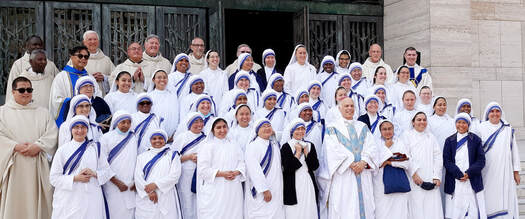
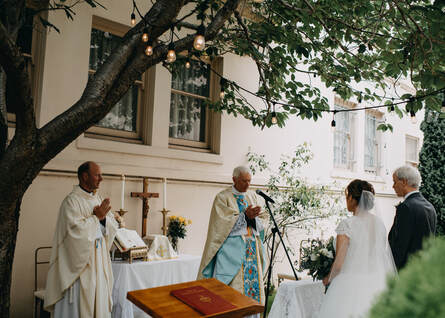
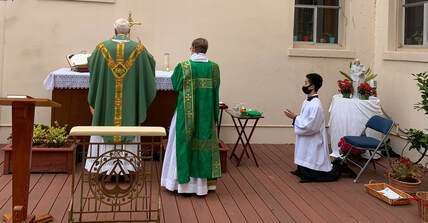
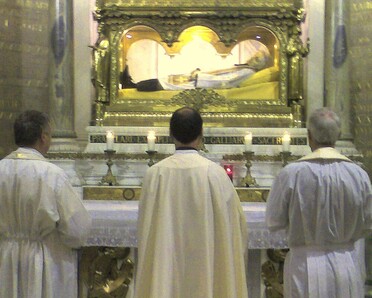
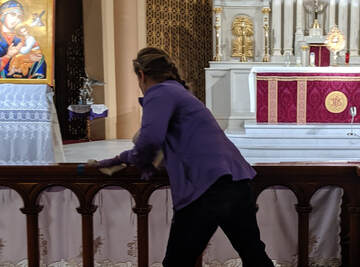


 RSS Feed
RSS Feed